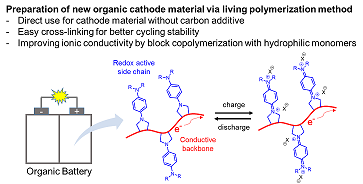CESI Post-Doctoral Fellowship Winners
The Cornell Energy System Institute (CESI) is excited to announce our two newest winners of the Post-Doctoral Fellowship Program for 2020. Regina Garcia-Mendez, who will be co-advised by Dr. Andrej Singer and Dr. Lynden Archer; and Cheol Kang, who will be co-advised by Dr. Geoffrey Coates and Dr. Héctor D. Abruña.
The CESI Post-doctoral Fellowships are high-profile fellowships designed to attract the best and brightest young researchers in energy science, engineering, and materials to Cornell. The goal is to create a cohort of independent scholars pursuing frontier research in energy. Fellows will work in partnership with Cornell faculty sponsors on projects consistent with the CESI mission. The CESI fellowships are two-year appointments and provide up to 50% of the cost associated with sponsoring a postdoctoral scientist at Cornell, with the faculty advisors providing the other 50%.
Regina Garcia-Mendez completed her Ph.D. in Materials Science and Engineering at the University of Michigan in 2020, under the supervision of Professor Jeff Sakamoto. Her graduate work focused on correlating structural and interfacial effects of ceramic solid electrolytes with cycling stability of Li metal in solid-state batteries. Even though most recent investigations have been carried out focusing on the lithium anode-electrolyte interface, including her thesis, the practical stability of solid electrolytes at high voltages still needs further investigation.
In particular, the (electro-)chemical evolution of electrode materials and interfaces that can often be linked to mechanical degradation due to the all-solid nature of these systems. Thus, as a CESI Post-Doctoral Fellow, Garcia-Mendez’s research will pursue forming anionic polymer coatings in-situ throughout the cathode to prevent exposing the solid electrolyte to oxidation and attain intimate contact between components. Furthermore, the compliant nature of the polymer may accommodate volume changes during cycling allowing capacity retention. Regina’s research project is entitled, In-situ generated cathode electrode interfaces for high voltage stabilization of a ceramic electrolyte. Advanced characterization techniques such as in-situ soft and hard X-ray scattering and imaging techniques coupled with Electrochemical Impedance Spectroscopy (EIS) measurements will be used to understand the formation process and evolution of the interfaces. In addition, mobility and structural changes under dynamic conditions will be studied.
Figure 1. Schematic of anionic polymer coatings onto cathode particles for solid electrolyte oxidative-stability enhancement
Cheol Kang is a final-year Ph.D. candidate (supervised by Prof. Tae-Lim Choi) in the Department of Chemistry at Seoul National University. He completed his Bachelor’s Degree in the same department and started his Ph.D. course in 2014. During the course, Cheol focused on developing synthetic methodologies for making conjugated polyenes and polyenynes from multi-yne monomers by using Ru-based olefin metathesis catalysts. By combining olefin metathesis and metallotropic 1,3-shift reactions (cascade M&M polymerization), he enabled the controlled synthesis of conjugated polyenynes via chain-growth mechanism. After completing his Ph.D., he will join the Coates group in the Department of Chemistry and Chemical Biology at Cornell.
As a postdoctoral researcher, Cheol aims to develop new organic cathode materials by combining redox-active side chains with conductive polymer backbone. To date, most conventional batteries include inorganic materials that are rare, expensive and energy-consuming for recycling. In contrast, organic materials enable access to greener energy storage systems because they are based on naturally abundant elements that are easier to recycle. Cheol proposes making new polymeric cathode materials consisting of conductive backbone and redox-active side chains via living cyclopolymerization of 1,6-heptadiyne derivatives. Owing to the innate conductivity of polyacetylene backbone, this new material will not require the use of carbon additives, which were generally added to conventional organic cathodes for better electronic conductivity. Furthermore, he suggests making network polymers by using cross-linking agents (covalently linked two diyne units) to improve structural stability, thereby enhancing the charge/discharge cycling stability. Due to the living character of this polymerization system, even block copolymerization with monomers having hydrophilic groups will be possible, which will improve the ionic conductivity of the cathode material. This multi-functional material will offer a better chance for sustainable, versatile, and potentially low-cost energy storage devices.


